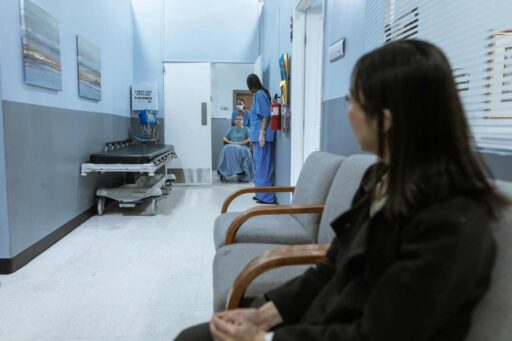Australian expat health insurance is a challenging topic when moving abroad, as Medicare does not cover medical expenses outside of Australia.
While some countries offer limited public healthcare access through Reciprocal Health Care Agreements (RHCAs), most expats must arrange private health insurance to cover medical costs in their destination country.
If you are looking to invest as an expat or high-net-worth individual, which is what I specialize in, you can email me (advice@adamfayed.com) or WhatsApp (+44-7393-450-837).
This includes if you are looking for a second opinion or alternative investments.
Some of the facts might change from the time of writing, and nothing written here is formal advice.
Health insurance requirements vary by country, and many nations mandate private coverage for visa approvals.
Expats should consider factors such as coverage for hospitalization, outpatient care, specialist visits, prescription drugs, and medical evacuation when selecting a policy.
Additionally, Australians must manage tax obligations related to Medicare, including potential Medicare Levy and Medicare Levy Surcharge (MLS) payments if they remain Australian tax residents.

Australian Expat Medicare: Does Australian Medicare Cover Overseas Expats?
No. Medicare is only available to Australian residents, meaning expats who move abroad permanently or for an extended period generally lose access.
Medical treatments received outside Australia are not covered by Medicare, and expats cannot claim Medicare benefits for foreign healthcare expenses.
However, expats who retain Australian tax residency or return for short-term visits may still qualify for Medicare services while in Australia.
Medicare Eligibility for Expats Returning to Australia
Expats who return to Australia permanently can reactivate their Medicare coverage but may face waiting periods depending on their prior status.
Those who suspended Medicare before leaving can usually reinstate it immediately upon returning.
For expats making short-term visits to Australia, Medicare access depends on:
- Residency status – Only those classified as Australian tax residents can access full Medicare benefits.
- Length of stay – Expats visiting for short periods may have restricted Medicare access.
- RHCA eligibility – Expats from countries with Reciprocal Health Care Agreements can receive limited Medicare benefits while in Australia.
Read further for more information about how to reinstate Medicare after returning to Australia.

Can Medicare be suspended?
Expats can suspend Medicare depending on their circumstances:
- Suspending Medicare (for absences under 5 years):
- Recommended for temporary expats who plan to return within five years.
- Prevents expats from paying the Medicare Levy and Medicare Levy Surcharge (MLS) during their absence.
- Allows for immediate reactivation upon returning to Australia.
Can Medicare be cancelled?
- Cancelling Medicare (for permanent relocation):
- Necessary for expats moving permanently to avoid being taxed for a service they cannot use.
- Recommended for those who do not intend to return within five years.
- Requires re-enrollment upon returning to Australia, which may involve waiting periods.
Expats can apply for Medicare suspension or cancellation by contacting Services Australia and providing proof of their relocation.
How does moving abroad affect the Medicare levy?
The Medicare Levy is a 2% tax on taxable income that funds Australia’s public healthcare system.
Expats who remain Australian tax residents must continue paying the levy, even if they are no longer eligible for Medicare services.
Expats can apply for a Medicare Levy Exemption Certificate to avoid paying this tax if:
- They have left Australia permanently and no longer qualify for Medicare.
- They are a non-resident for tax purposes.
- They have suspended or cancelled their Medicare enrollment.

How does the Medicare Levy Surcharge (MLS) affect expats?
The Medicare Levy Surcharge (MLS) is an extra tax applied to high-income earners who do not have private health insurance. It ranges from 1% to 1.5% of taxable income and applies to individuals earning over AUD 93,000 or families earning over AUD 186,000.
Expats classified as Australian tax residents may still be charged the MLS unless they:
- Hold eligible private health insurance that meets Australian standards.
- Apply for a Medicare Levy Exemption Certificate.
- Prove they are non-residents for tax purposes.
For expats who retain Australian tax residency, maintaining an Australian-compliant private health insurance policy is often the simplest way to avoid the MLS.
However, if they have fully relocated and severed tax ties, cancelling Medicare and obtaining an exemption certificate is the best option.

Reciprocal Health Care Agreements (RHCA) for Australian Expats
What are Reciprocal Health Care Agreements?
Australia has Reciprocal Health Care Agreements (RHCA) with 11 countries, allowing Australians to access public healthcare services at a subsidized rate or for free while visiting these countries.

It is important to note that these agreements do not provide full coverage and are generally limited to medically necessary treatments.
RHCAs are designed for short-term stays, such as travel, temporary work assignments, or study.
They do not replace comprehensive private health insurance, which is necessary for long-term healthcare security.
Which countries have Reciprocal Medicare Agreements with Australia?
As of 2024, Australia has RHCAs with the following countries:
- United Kingdom
- New Zealand
- Ireland
- Sweden
- Norway
- Finland
- Belgium
- Netherlands
- Italy
- Malta
- Slovenia
What medical services are covered under RHCA?
Each RHCA country has different levels of coverage, but in general, Australians can receive:
- Emergency hospital treatment in public hospitals.
- Medically necessary care for acute illnesses or injuries.
- Subsidized or free doctor visits, depending on the country.
- Prescription medications at reduced costs, if the medication is covered under that country’s healthcare scheme.

RHCAs do not cover:
- Elective procedures or non-urgent treatments.
- Private hospital care or private doctors.
- Dental, optical, and allied health services (e.g., physiotherapy, chiropractic).
- Ongoing or pre-existing conditions, unless they require emergency treatment.
- Medical evacuation or repatriation to Australia.
How do expats access RHCA benefits?
To access RHCA healthcare services, Australian expats must provide:
- A valid Australian passport.
- A Medicare card (may be required in some countries).
- Proof of Australian residency status (e.g., visa or temporary work permit).
The process differs depending on the country. For example:
- In the United Kingdom, Australians can receive NHS emergency and medically necessary care, but GP visits may not always be free.
- In Italy and Malta, expats must register with the national health service for temporary access.
- In Sweden, Norway, and Finland, medical services are available at subsidized rates, similar to those paid by local residents.

Are long-term expats eligible for RHCA benefits?
RHCAs primarily benefit short-term visitors rather than long-term expats. If an Australian becomes a permanent resident in their new country, they may lose RHCA eligibility and must enroll in the local healthcare system or obtain private insurance.
For example:
- In the UK, Australians on a work visa for over six months must pay the Immigration Health Surcharge (IHS) to access NHS services.
- In New Zealand, Australians can access public healthcare if they become permanent residents, but they do not receive immediate automatic coverage.
RHCAs vs. International Health Insurance for Australian Expats
While RHCAs provide some financial relief for medical expenses, they do not replace comprehensive international health insurance.
Expats relying solely on RHCA coverage risk out-of-pocket expenses for uncovered services, including private medical care, specialist treatments, and long-term hospitalization.
Since RHCA does not cover medical evacuation, Australian expats in remote areas or countries with limited medical facilities should consider international health insurance that includes emergency evacuation and repatriation.

For long-term security and visa compliance, Australian expats should arrange private international health insurance, even if their destination country has an RHCA with Australia.
Returning to Australia – Reinstating Medicare and Health Coverage
Expats returning to Australia permanently can reinstate Medicare but may face waiting periods depending on their previous status.
Those who suspended Medicare before leaving can reactivate it immediately upon providing proof of residency. Expats who canceled Medicare may need to reapply and may experience delays before regaining full access.
If an expat held private health insurance abroad, it may not meet Australian private health coverage standards so it is recommended that expats check whether their international policy includes coverage for Australia or if they need to enroll in an Australian private health plan to avoid out-of-pocket medical expenses.
Expats who return as temporary residents (e.g., on a bridging visa or work visa) may not be eligible for Medicare and will require private health insurance for coverage.
Upon returning, it is recommended to register for Medicare immediately, ensure tax residency status is updated, and consider private health insurance for faster access to medical services.
For more guidance on which international health insurance providers work best for your situation, please consult an expat financial advisor.
Pained by financial indecision?

Adam is an internationally recognised author on financial matters with over 830million answer views on Quora, a widely sold book on Amazon, and a contributor on Forbes.



